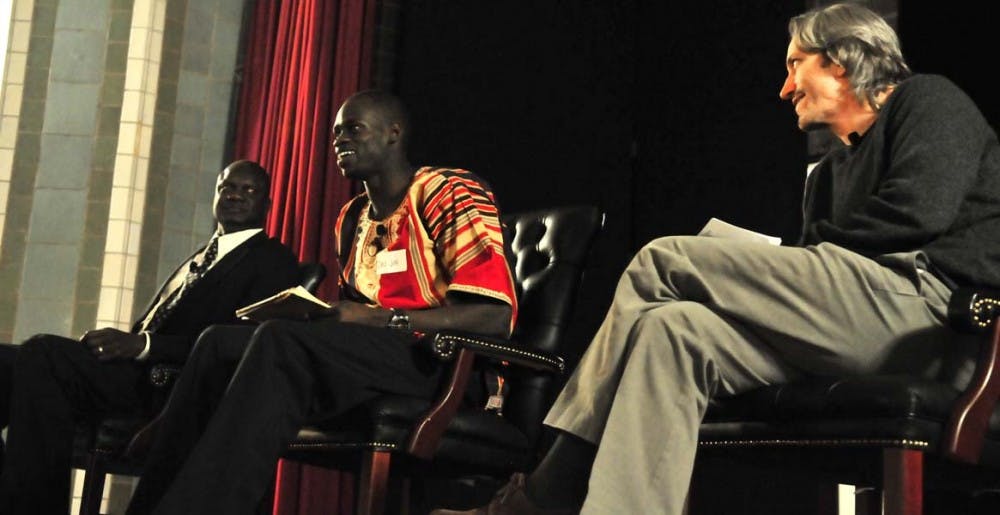
Capping off their year-long focus on post-conflict recovery and development, Moral Voices brought two humanitarians to tell their stories of survival and service.
Launched by Penn Hillel, Moral Voices is “a social justice initiative,” said Debbie Kail, associate director of Hillel. This year’s theme, she added, addresses the questions of “how societies rebuild and what happens to the people affected by conflict.”
1982 College graduate Anne Heyman, who founded Moral Voices with her husband, Seth Merrin, said the group aims to demonstrate that “there’s no reason anyone in that audience can’t stand up and be a moral voice.”
The speakers this year emphasized the importance of individuals’ actions to enact great change.
For their annual keynote event, the group invited John Prendergast, co-founder of the Enough Project, and John Bul Dau to Harrison Auditorium last night.
Dau was a “Lost Boy of Sudan” who fled his village in 1987. More than a decade later, he emigrated to the United States. Since then, he has established The Sudanese Lost Boys Foundation of Central New York and the John Dau Foundation, and he now serves as director of the Sudan Project at Direct Change.
Prendergast has worked on issues of violence and hunger in Africa since 1984 through his involvement with nongovernmental organizations, the United Nations and both the Clinton and Obama administrations.
The speakers’ on-stage host was College junior Dau Jok, varsity basketball co-captain and himself a refugee from Sudan.
For his part, Dau described his experience of the widespread violence in Sudan. He said that when armed North Sudanese came to destroy his village, it was “as if God had tired of us … had given these people power to destroy us.”
The long struggle that followed to reach relative safety in Ethiopia, he said, “reduced me to an animal … I didn’t know if I would be the next person to die, but I survived.”
Prendergast said that he was drawn to work in Africa by a television report on the Ethiopian famine in the 1980s. He traveled to Mali with neither any resources nor a place to stay, but was driven by the belief that “people’s movements are a source of profound advancements in our history.” Since then, he has worked, like Dau, to solve humanitarian issues in Africa.
Prendergast and Dau then spoke more of the potential for change in the future. Dau said that in order to be effective, “you have to be selective in what you’re going to fight … so what’s important? Is it something good for your family? Your country? Humanity?”
Prendergast added that even seemingly small actions can play important roles. He explained that the Obama administration monitors what issues students are focusing on online.
“If you can create enough chatter in the web universe, that’s something that’s getting noticed increasingly in our political system,” he said.
In an often-repeated piece of advice — but which the speakers that night understood better than most — Dau concluded by reminding the audience that “if you want to succeed, you must also accept struggling.”
The Daily Pennsylvanian is an independent, student-run newspaper. Please consider making a donation to support the coverage that shapes the University. Your generosity ensures a future of strong journalism at Penn.
DonatePlease note All comments are eligible for publication in The Daily Pennsylvanian.







